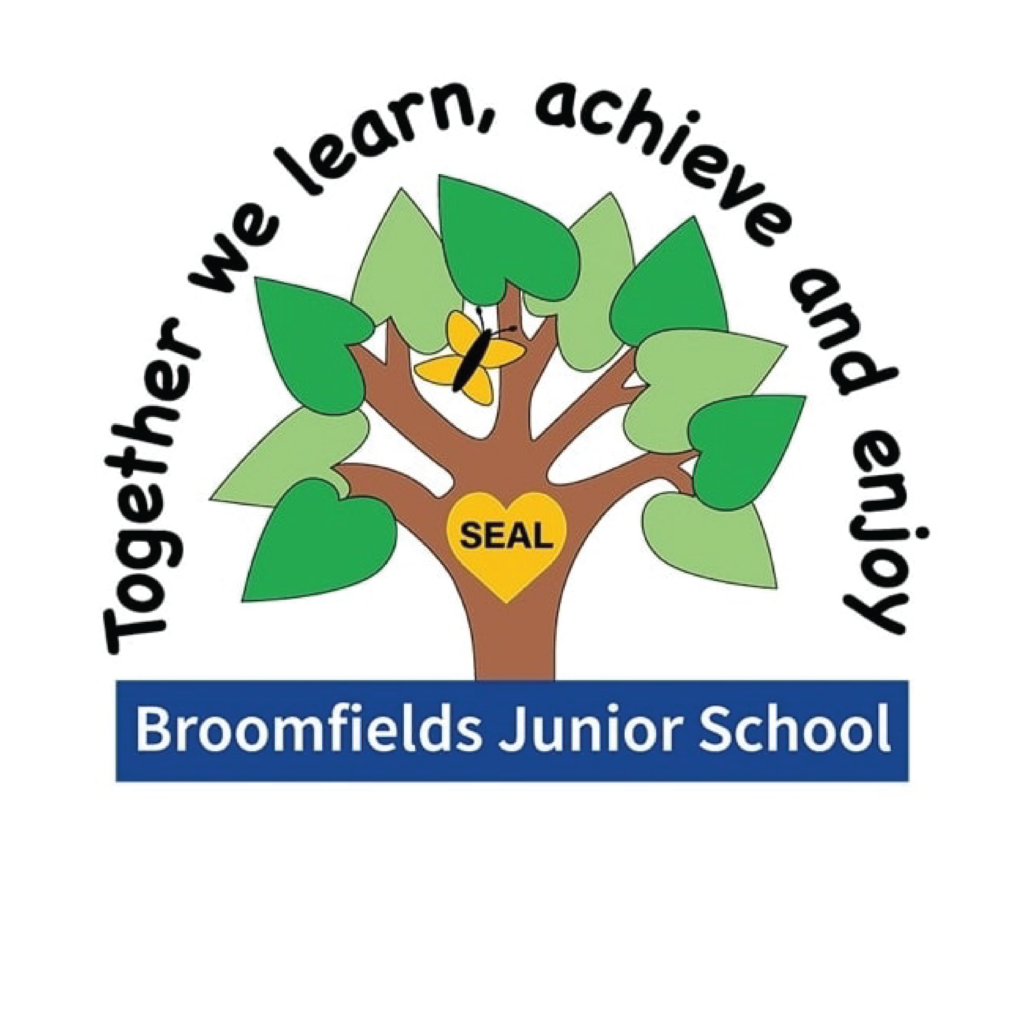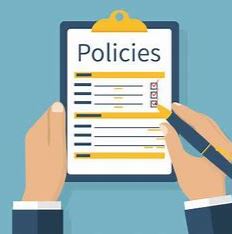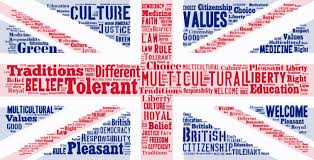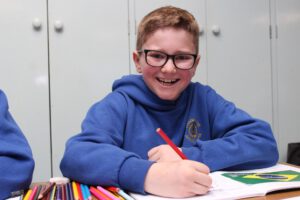Intent
At Broomfields Junior School our PSHE curriculum is inclusive for all. We want our pupils to feel happy, safe and included. As a result of this, they will become healthy, independent and responsible members of a society who understand how they are developing personally and socially. It will give them confidence to tackle many of the moral, social and cultural issues that are part of growing up in our diverse society. Our children are encouraged to develop their sense of self-worth by playing a positive role in contributing to school life and the wider community. We want our children to ‘Be the Best you can Be!’
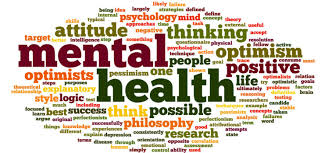
Implementation
Our PSHE Curriculum Framework is a bespoke Broomfields Junior School curriculum and follows a question-based approach adapted and reflective to the context of our school and local community. It has been written to address our pupils’ needs and stages of development.
The Core Curriculum themes are:
• Health and Wellbeing– Healthy Lifestyles, Growing and Changing, Keeping Safe
• Relationships – Feelings and Emotions, Healthy Relationships, Valuing Difference
• Living in the Wider World – Rights and Responsibilities, Environment, Money
As a school we have also chosen to champion the core Social, Emotional Aspects of Learning (SEAL) themes throughout our PSHE learning. These themes spiral throughout our PSHE curriculum.

Celebrating difference and diversity
No Outsiders by Andrew Moffat – Celebrating Difference and Diversity
At Broomfields Junior School we celebrate Difference and Diversity in a variety of ways. Built into our PSHE Curriculum, and building on from our Stonewall Award, we share a different text each half term with the aim of discussing and developing our understanding of the world around us. We want to make everyone feel welcome.
Here are the books we currently share:
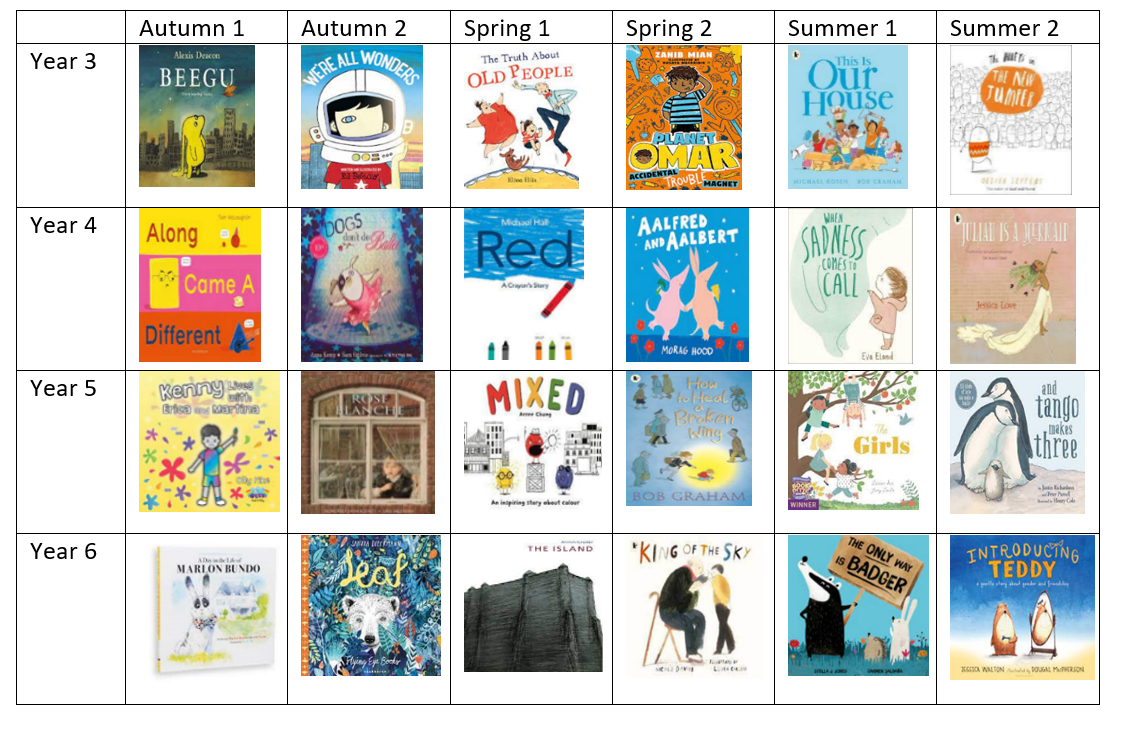
SEAL
‘SEAL is a comprehensive approach to promoting the social and emotional skills that underpin effective learning, positive behaviour and emotional health in schools.” (National Strategies quote)
At Broomfields Junior School we are champions for Social, Emotional Aspects of Learning (SEAL). We teach SEAL through five broad themes:
- Managing Feelings
- Motivation
- Empathy
- Social Skills
- Self Awareness
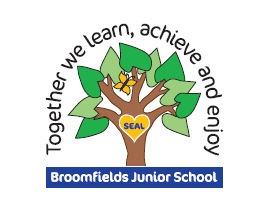
Each year the children nominate SEAL Ambassadors, who award daily SEAL stickers for positive social and emotional behaviour in their classroom. There are half termly SEAL Commendation assemblies, where parents are invited into school (considering current Covid restrictions) to help praise and reward positive SEAL behaviour. Running alongside our school’s Golden Rules: Be Kind; Be respectful; Be Safe; Dream Big!
Assemblies
Our SEAL assemblies follow the themes of: New Beginnings; Getting on and Falling Out; Say No to Bullying; Going for Goals; Good to Be Me; Relationships and Changes. Alongside these themes, we build in an assembly and circle time programme which highlights current news, events and religious celebrations.
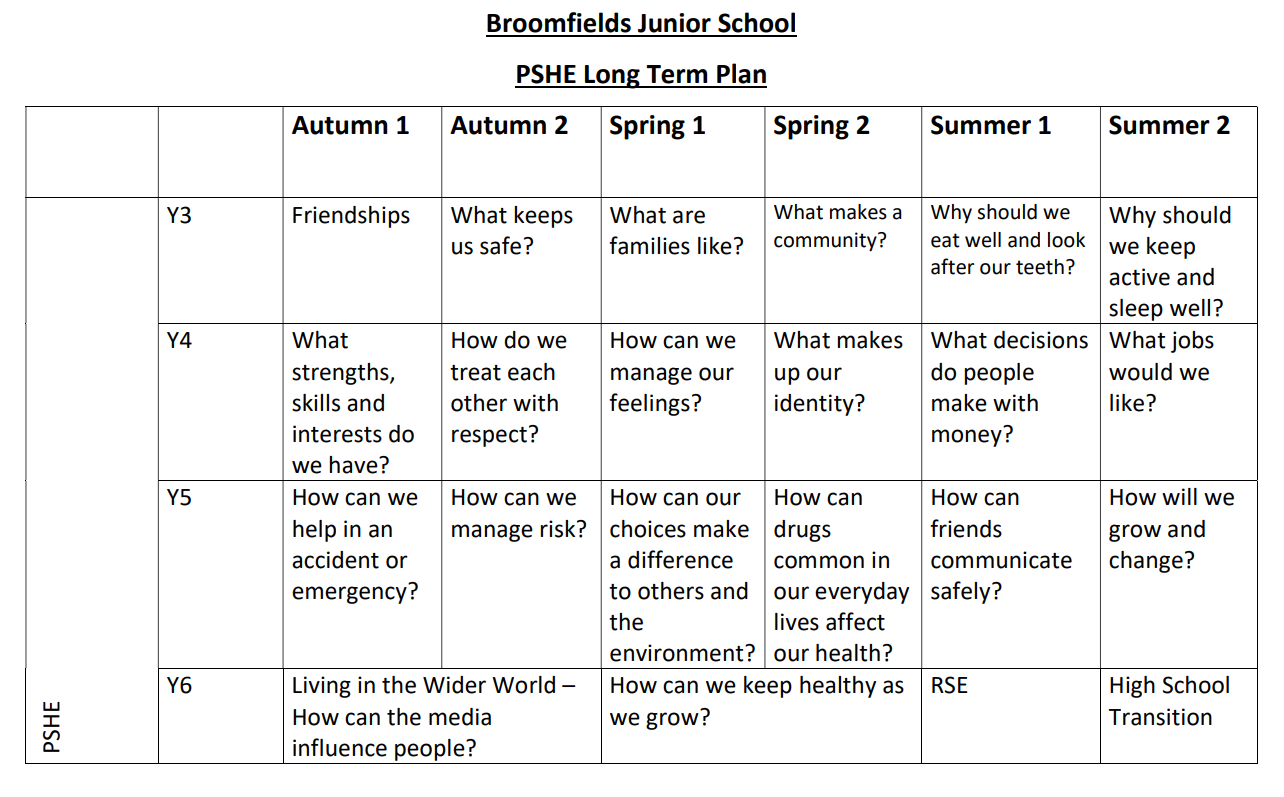
myHappyMind
We have launched myHappymind to support mental health in our school and to teach children about their brains and the way they learn.

We are proud to announce that we are a myHappymind Bronze Accredited school!
This means that as a school we consider the mental health and wellbeing of our children as one of our top priorities. We have created a whole school culture that helps build our children’s resilience, confidence and self-esteem as well as teaching them how to self-regulate in those stressful times.
This Accreditation badge has been awarded thanks to all the effort our staff, children, governors and parents have put in to bring the lessons of myHappymind to life all around our school!
To Learn more about the myHappymind for Schools programme visit their website here – https://myhappymind.org/
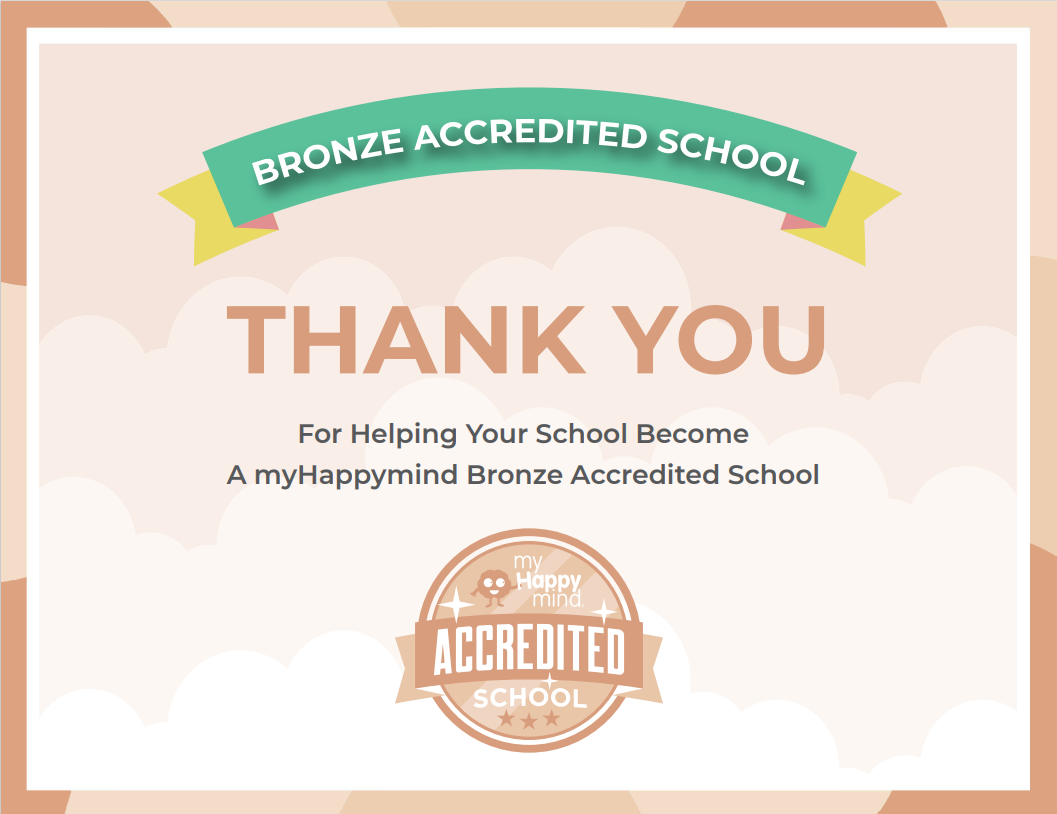
myHappymind. is an NHS backed science-backed programme for schools which is grounded in the latest science and research about what it takes to create positive wellbeing. It’s taught to every single child and there’s a curriculum for every year group from Early Years (at Cobbs Infant School) to Year 6.
Find out more about myHappymind here. https://myhappymind.org/
myHappymind. Giving today’s children the skills to thrive in tomorrow’s world.
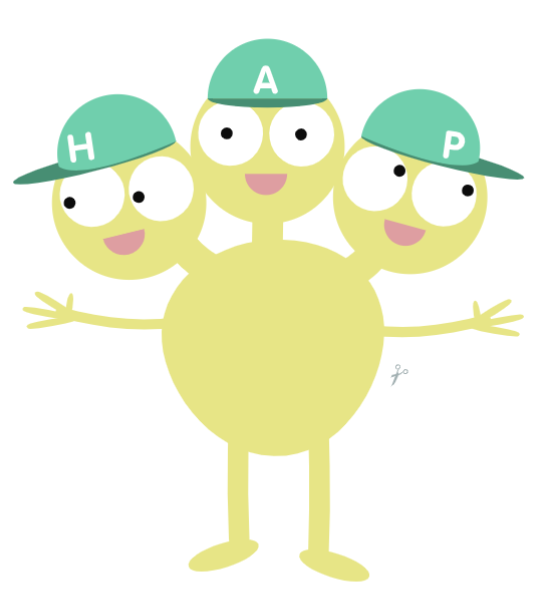
H stands for Hippocampus
Hippocampus is like your scrapbook storing all your memories and things you learn.
A stands for Amygdala.
The Amygdala takes control and keeps you safe when there is danger. It helps you deal with situations using fight, flight or freeze.
P stands for Prefrontal Cortex
The Prefrontal Cortex helps you to make choices, concentrate and solve problems.
Can you grow your mind?
‘Yes’. Neuroplasticity is taught in the first myHappymind session. Neuroplasticity is the process of your brain growing when you focus on your mind on something.
The children are excited about myHappymind and are all looking forward to the sessions and learning how the brain functions.
Time to journal
Each child will have their own myHappymind journal in which they can write down their thoughts, worries and feelings.
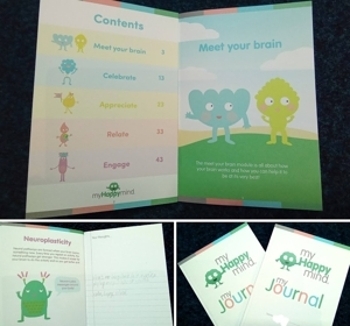
myHappymind. Giving today’s children the skills to thrive in tomorrow’s world.
The 10 Key principles of Effective PSHE Education
1. Start where children and young people are: find out what they already know, understand, are able to do and are able to say. For maximum impact involve them in the planning of your PSHE education programme and the class PSHE Ground Rules.
2. Plan a ‘spiral programme’ which introduces new and more challenging learning, while building on what has gone before, which reflects and meets the personal developmental needs of the children and young people.
3. Take a positive approach which does not attempt to induce shock or guilt but focuses on what children and young people can do to keep themselves and others healthy and safe and to lead happy and fulfilling lives.
4. Offer a wide variety of teaching and learning styles within PSHE education, with an emphasis on interactive learning and the teacher as facilitator.
5. Provide information which is realistic and relevant and which reinforces positive social norms.
6. Encourage young people to reflect on their learning and the progress they have made, and to transfer what they have learned to say and to do from one school subject to another, and from school to their lives in the wider community.
7. Recognise that the PSHE education programme is just one part of what a school can do to help a child to develop the knowledge, skills, attitudes and understanding they need to fulfil their potential. Link the PSHE education programme to other whole school approaches, to pastoral support, and provide a setting where the responsible choice becomes the easy choice. Encourage staff, families and the wider community to get involved.
8. Embed PSHE education within other efforts to ensure children and young people have positive relationships with adults, feel valued and where those who are most vulnerable are identified and supported.
9. Provide opportunities for children and young people to make real decisions about their lives, to take part in activities which simulate adult choices and where they can demonstrate their ability to take responsibility for their decisions.
10. Provide a safe and supportive learning environment where children and young people can develop the confidence to ask questions, challenge the information they are offered, draw on their own experience, express their views and opinions and put what they have learned into practice in their own lives.
Coordinator – Mrs Caggiano
